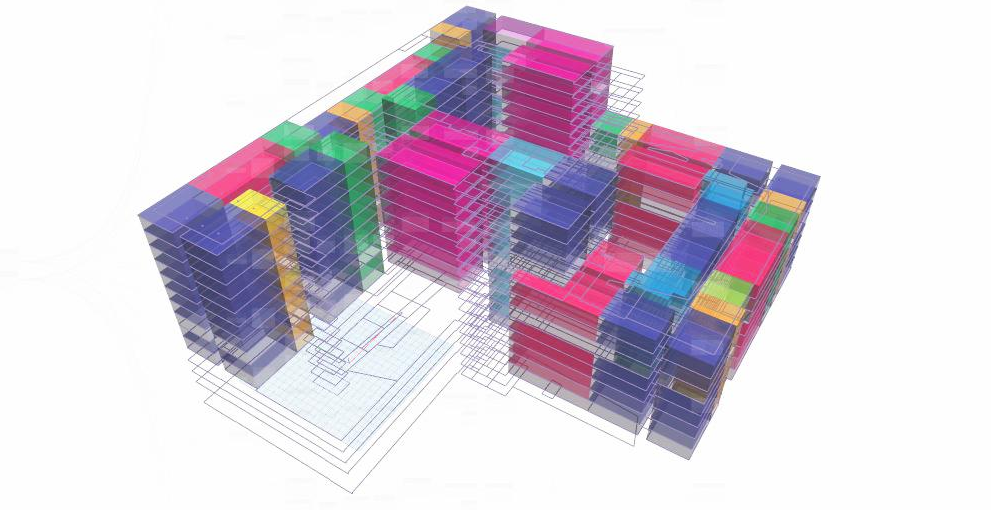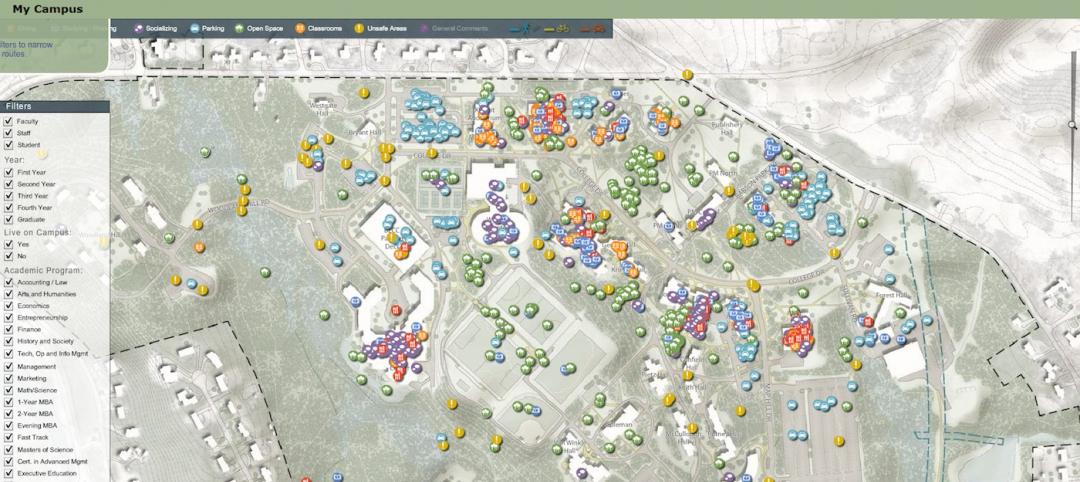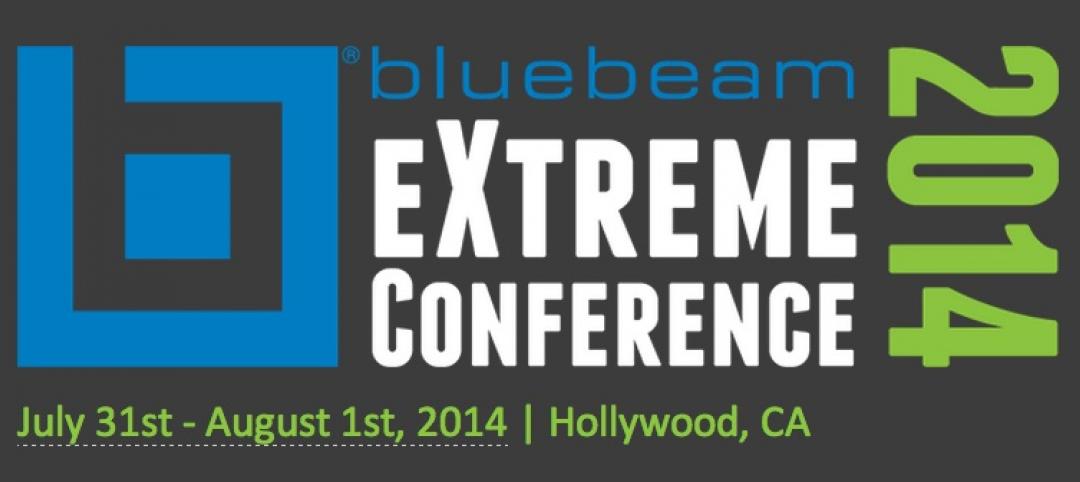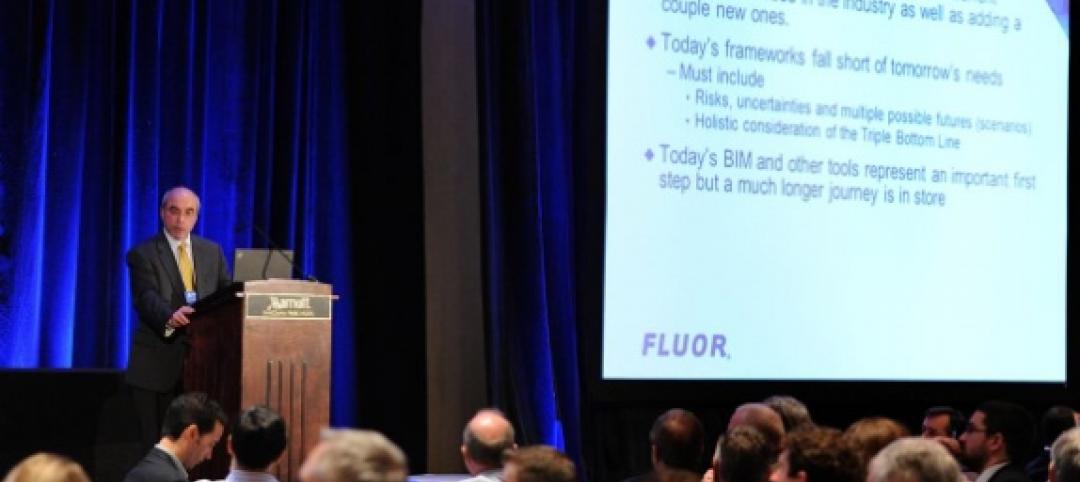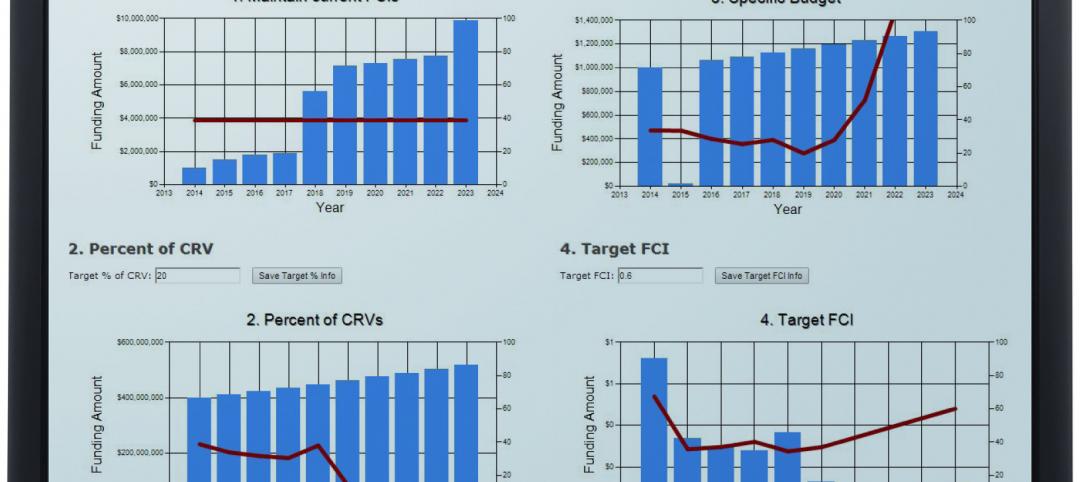At the BLDGS=DATA symposium in New York this spring, the discussion focused on strategies for harnessing the massive amount of data made available by modern technology. An increased capacity for analysis has led to immense data generation and an unprecedented ability to identify correlations. The AEC industry today is grappling with ways to make the best use of it and to develop standard processes for leveraging and sharing it.
This surge of data is changing the very nature of design as architects begin to embrace a much more data-driven approach. Advances in building information modeling (BIM) allow for more thorough project documentation and the ability to share building information with contractors. Intricate digital models and environmental simulation enable offsite fabrication methods and building systems improvements that have the potential to increase quality and reduce construction costs. Most importantly, access to vast quantities of data is helping design teams better understand a client’s needs and can be used to validate a particular design decision beyond previously available means.
With an increased capacity for capturing data, it is imperative not to get lost in the white noise. The seemingly limitless stockpiles of information must be strategically vetted for meaningful interpretation with a focus on the value it provides to the process and the end product. One of the most evident attempts to find a balance between data and technology is the current infatuation with computational design, with its powerful new software platforms, intricate parametric tessellations, and innovative materials.
How can architecture make the most of the growing data movement? The true promise of this information age is not iteration and automation but the ability to substantiate expertise and predict outcomes.
To better position themselves to do so, architectural practices must acquire and develop new skills to be able to filter and find value in the newly available data sources. Computer science will become an essential component of design education and graduates will be encouraged to form much more integral partnerships with engineers, construction managers, and environmental sustainability experts. Architects must seek data collection and information management techniques to help inform their process, exhaust possibilities, and confirm design outcomes. The evolution of the practice of architecture is about changing our mentality and approach: broadening our thinking, not necessarily eliminating tradition. While technology is becoming a powerful tool, the most critical role belongs to the individual who, alone or as part of a greater whole, is harnessing that power.
Ultimately the AEC industry as a whole will benefit from an increasingly data-driven approach to design and construction that promotes improved communication, better quality projects, and fewer hindrances to the building delivery process.
About the Author: Kyle Martin is a member of Shepley Bulfinch’s architectural staff. He is a co-founder of the Boston Society of Architects Revit Users Group’s “Dynamo-litia” and currently teaches Advanced Revit and Computational Workflows at Boston Architectural College.
Related Stories
| May 3, 2014
4 easy steps to being a great project manager
Managing a team of people, especially creative people, is a task that not everyone is up for. Keeping your team on the same page while maintaining a schedule and budget that can keep your corporation happy will take confidence and bountiful people skills. Here are some tips for effectively managing a project. SPONSORED CONTENT
| May 1, 2014
Super BIM: 7 award-winning BIM/VDC-driven projects
Thom Mayne's Perot Museum of Nature and Science and Anaheim's new intermodal center are among the 2014 AIA TAP BIM Award winners.
| Apr 23, 2014
Ahead of the crowd: How architects can utilize crowdsourcing for project planning
Advanced methods of data collection, applied both prior to design and after opening, are bringing a new focus to the entire planning process.
Sponsored | | Apr 17, 2014
Technology enables state transportation agency to make the leap to digital design review
Earlier this month, my colleague and I presented a session to a group of civil engineers and transportation agencies about the tech trends in the AEC space. Along with advice on how to prepare your plan for controlled collaboration, we also talked through some practical use cases. One such use case was especially interesting, as it outlined a challenge not unfamiliar to government agencies who are contemplating the leap from paper to digital processes: how to securely migrate workflows.
| Apr 10, 2014
Submit Your Project for a Bluebeam eXtreme Award!
Bluebeam is holding the second annual Bluebeam eXtreme Awards at the 2014 Bluebeam eXtreme Conference in Hollywood, Calf.
| Apr 3, 2014
Security, accountability, and cloud access: Can you really have it all?
I’ve heard countless stories of conversations between project engineers and IT professionals who can’t come to an agreement on the level of security needed to protect their data while making it more accessible—not only externally, but also internally.
| Apr 2, 2014
New Autodesk software allows visualization of more realistic bridge concepts
The Autodesk InfraWorks 360 family of offerings now includes enhanced roads and highways capabilities, better representations of graphical information, and fixed-length pipe modeling capability.
| Mar 26, 2014
Zaha Hadid's glimmering 'cultural hub of Seoul' opens with fashion, flair [slideshow]
The new space, the Dongdaemun Design Plaza, is a blend of park and cultural spaces meant for the public to enjoy.
| Mar 20, 2014
Fluor defines the future 7D deliverable without losing sight of real results today
A fascinating client story by Fluor SVP Robert Prieto reminds us that sometimes it’s the simplest details that can bring about real results today—and we shouldn’t overlook them, even as we push to change the future state of project facilitation.
| Mar 12, 2014
New CannonDesign database allows users to track facility assets
The new software identifies critical failures of components and systems, code and ADA-compliance issues, and systematically justifies prudent expenditures.


